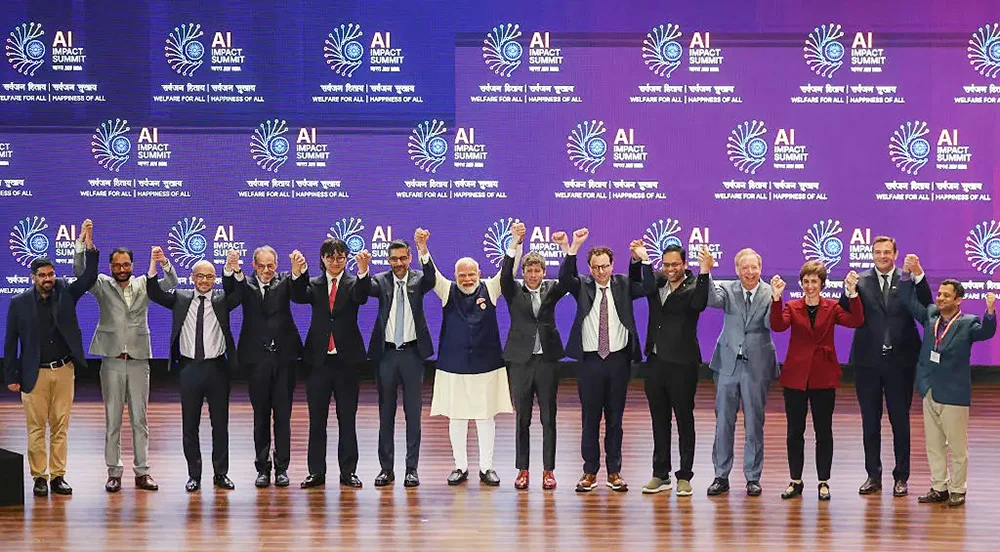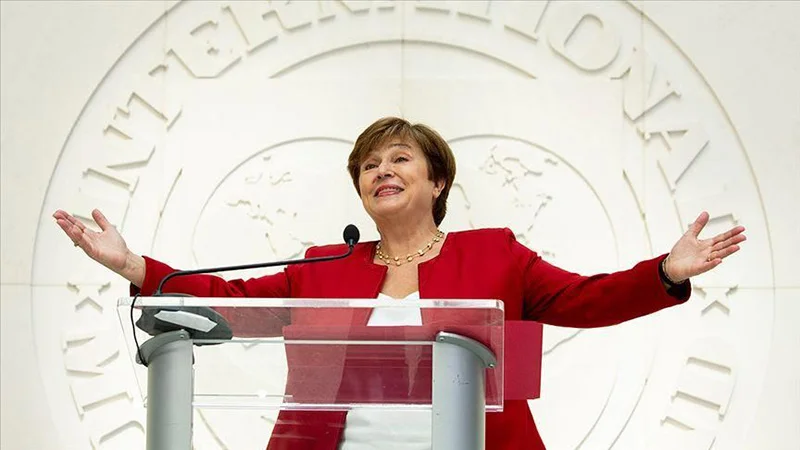Features
Joe Biden and Kamala Harris for the People VS Donald Trump for the Virus

by Rajan Philips
Four years ago, a minority of American voters unwittingly perpetrated a fraud on their country. In November this year, the American people will have the opportunity to vote wisely and retake their country. In 2016, a technically ill equipped and morally debased candidate won the presidential election thanks to the chicanery of an electoral college system against an eminently qualified but cruelly maligned candidate. Hillary Clinton who lost the election to Donald Trump, would have made history as the first female American President if she had prevailed in the electoral college vote just as she won the popular vote. But having a woman succeed an African American President was too much for America’s mastodons. Pundits blamed it on the Clinton baggage that the American right and the national media had piled on her and her erratic genius of a husband over 40 years of their conjugal public life. This time there is no excuse for a repeat blunder. The Democratic nominee Joe Biden and his running mate Kamala Harris carry no baggage. The only darts that can be flung at them are – he is too old, and she is too bi-racial. There is no other political stump for Donald Trump to stand on. Except fraud.
And fraud is what Trump seems to be banking on for this election. If it was covert and indirect fraud in 2016, Trump is now ready for direct and blatant fraud. From the time he became candidate for the 2016 election, Trump has been calling the American electoral system a fraud and basing it on the canard that the voting system is manipulated in favour of minorities and illegal immigrants. The reverse is, in fact, the case. What is fraudulent about the American electoral system is the systemic voter suppression targeting minorities and marginalized communities through any means possible. But that is not Trump’s concern. His reason for crying fraud is to prepare his base to reject the November election results which he fears will go against him. Every day he is pulling a new trick from outside the rule book to subvert the system and extend his stay in office even after an electoral defeat.
In his latest detour last Thursday, he was reaching to a new ally in the right wing nut organization called QAnon. The organization operates on the theory that “there is a worldwide cabal of Satan-worshiping pedophiles who rule the world,” and that these Satan-worshippers have infiltrated the American “deep-state” and are plotting against their President Donald Trump and his supporters. Even as Trump was signalling this organization to rile up his base, Facebook was taking down thousands of groups and accounts sharing QAnon messages on its platforms. In another poetic setback, Steve Bannon, the creator of far-right Breitbart News who went on to become the CEO of Trump’s 2016 campaign down its home stretch, and later White House Chief of Staff for political strategy, was arrested on Thursday for allegedly defrauding “We Build the Wall” campaign that was set up to raise private funding and build sections of Trump’s border wall against Mexico.
Trump will dismiss every indictment as a deep state ploy against him, and use it to reinforce his core white American support and retrace his 2016 victory path. His difficulty this year is that he has to defend his record in office, especially his terrible failure to contain the new coronavirus, whereas in 2016 he had the advantage of projecting himself as the new outsider marching on Washington to take down the establishment. To ‘drain the swamp in Washington,’ was his clarion call in the last election. Now, the Trump swamp stretches all over America and spills over beyond its borders.
No certainty
There is no certainty of a Democratic victory given the electoral college system which can thwart the verdict of the popular vote as it did in 2016. If they were to falter again similarly, it would be the third time this century that the Democrats would have won the popular vote but lost the election. Trump’s popularity and approval ratings are at the historically low at the 30-40% levels, but they are disturbingly high compared to other western democracies where governments and leaders with similar performance could hardly have their popularity upwards of 20%. Trump’s 30-40% ratings are indicative of the deep divisions in American politics, which Trump irresponsibly aggravates at every opportunity.
However, these numbers might be deceptive to Trump the same way they were deceptive to Hillary Clinton in 2016. Hillary Clinton’s consistent but narrow leads in national polling concealed her vulnerability in the handful of swing states which she eventually lost by small margins. Only a few pollsters, perhaps only one among them as far I know, consistently commented on this vulnerability. In 2020, Trump’s national polling between 30-40% is concealing his vulnerability in the same swing states that he snatched from the Democrats in the last election. Biden is currently leading Trump in these states by a healthy margin. But no one is making any final prediction for sure. Adding to the shock of the last election is the uncertainty of Covid-19, and no one is rushing to predict the outcome.
Demographically, going by Pew Research Centre’s comparison of voting patterns from 1972 (when Nixon won his short second term), Republicans have always obtained a majority of white voters since 1972, while Black and Hispanic voters have overwhelmingly supported the Democratic party. There was no gender gap until the 1988 election, and only in 1992 (with Bill Clinton’s first win) women’s vote started breaking decisively for the Democrats while men’s vote stayed with the Republicans. Until this century, the more educated sections voted Republican while those with less education supported the Democrats. Traditionally, potential Democratic voters did not show up to vote except in the four elections won by Bill Clinton (1992 and 1996) and Barak Obama (2008 and 2012). Bill Clinton in his two wins and Obama in his first made significant inroads into white voters, while Obama won 90% of the black vote and in large numbers in his two victories.
Hillary Clinton maintained the same voter demographic profile as Obama but with a slightly lower voter turnout. Yet, her vote tally of 65,850,000 is second only to Obama’s 69,500,000 (2008) and 65,915,000 (2012) in American history. More significantly, the racial, gender and educational, as well as regional, gaps between the voting bases of the two parties widened the most in 2016 unlike in any previous election. More non-white, female, educated and urban Americans voted Democrat, while their white, male, less educated and rural counterparts voted Republican. Inasmuch as the turnover of the swing states was seen as being due to white working-class votes moving from Democrats to Trump, winning them back became the immediate strategy of Democrats for the 2020 election.
This was also the premise on which Joe Biden launched his presidential bid based on his working class roots in Scranton, Pennsylvania, the state Democrats lost to Trump in 2016. He projected himself as a moderate candidate. After awkward stumbles in the early primaries, Biden’s campaign took off taking advantage of his strong support among African Americans. With Bernie Sanders, unable to regenerate the enthusiasm he achieved against Hillary Clinton in the 2016 primaries, Biden easily sealed the Democratic Party nomination weeks before the pandemic hit America. He would have run a cautious campaign and tried to win back the lost white working class votes in Midwestern States, but for Trump’s disastrous handling of the pandemic, and the public outrage at the slow killing of George Floyd, on May 25, under a police knee on a public road in Minneapolis, Minnesota.
Obama’s rebuke
There is nothing cautious now about the Democratic 2020 campaign. Democrats have turned the campaign into a referendum on Trump and they are betting on the Joe Biden-Kamala Harris ticket as an appealing restorative alternative to the Trump sickness. The Party’s convention held last week was historic not so much because it was the virtual political convention ever to be held, but really because it was the first when a sitting President was roundly condemned by the opposing Party as being crass, callow, lazy, incompetent, unempathetic and immoral.
Michelle Obama, the former First Lady, led off on the first day with a blistering attack on Trump for his incompetence. Former President Bill Clinton blasted Trump the next day for spending time watching TV and tweeting while letting America with 4% of the world’s population end up having 25% of the world’s Covid-19 cases and deaths. The third day belonged to what the western media has called “boundary breakers” – Hillary Clinton, the first female Presidential candidate; Nancy Pelosi, the first female Speaker of the House; Barak Obama, the first African American President; and Kamala Harris, the first woman of colour to be nominated as Vice Presidential candidate.
Obama’s convention speech was hugely unconventional. Speaking live from the Museum of the American Revolution in Philadelphia with the words of American Constitution inscribed on the walls behind him, Obama tore into Trump and his record in office, showing anger, scorn and even fear – fear for American democracy should Trump win a second term. Incumbent American Presidents are never publicly criticized by their predecessors. Obama’s scathing rebuke of Trump is a speech for history and perhaps a more consequential speech than his no less historic speech on race delivered in 2008 as a first-time presidential candidate. “Donald Trump hasn’t grown into the job because he can’t,” said Obama nonchalantly, and appealed to the American voters to vote for Joe Biden and Kamala Harris and stop Trump from winning a second term.
Joe Biden was Obama’s Vice President for two terms over eight years (2008-2015), and sat out the 2016 election when Hillary was the overwhelming favourite to carry the Democratic torch that year. Before becoming Vice-President, Biden was the US Senator from Delaware for 36 years, and made quite a few unsuccessful attempts to win nomination as the Party’s presidential candidate. Now Biden has a good shot at defeating Trump and continuing Obama’s legacy as President. His selection of Kamala Harris is as historic, as it is a repetition of the Obama-Biden ticket, for Kamala Harris with her Jamaican-African and South Indian ancestry is often touted as America’s female Obama.
In her acceptance speech as Vice-Presidential candidate, Harris recalled the first time she uttered the words “Kamala Harris for the people”, as a young Prosecutor in San Francisco. She went on to become the District Attorney in San Francisco, Attorney General for the State of California, and US Senator from California. Now she is making the case for the American people against the Trump presidency. “It is an open and shut case”, she has asserted. Biden and Harris have 72 days to convince the jury.
Features
Digital transformation in the Global South

Understanding Sri Lanka through the India AI Impact Summit 2026
Artificial Intelligence (AI) has rapidly moved from being a specialised technological field into a major social force that shapes economies, cultures, governance, and everyday human life. The India AI Impact Summit 2026, held in New Delhi, symbolised a significant moment for the Global South, especially South Asia, because it demonstrated that artificial intelligence is no longer limited to advanced Western economies but can also become a development tool for emerging societies. The summit gathered governments, researchers, technology companies, and international organisations to discuss how AI can support social welfare, public services, and economic growth. Its central message was that artificial intelligence should be human centred and socially useful. Instead of focusing only on powerful computing systems, the summit emphasised affordable technologies, open collaboration, and ethical responsibility so that ordinary citizens can benefit from digital transformation. For South Asia, where large populations live in rural areas and resources are unevenly distributed, this idea is particularly important.
People friendly AI
One of the most important concepts promoted at the summit was the idea of “people friendly AI.” This means that artificial intelligence should be accessible, understandable, and helpful in daily activities. In South Asia, language diversity and economic inequality often prevent people from using advanced technology. Therefore, systems designed for local languages, and smartphones, play a crucial role. When a farmer can speak to a digital assistant in Sinhala, Tamil, or Hindi and receive advice about weather patterns or crop diseases, technology becomes practical rather than distant. Similarly, voice based interfaces allow elderly people and individuals with limited literacy to use digital services. Affordable mobile based AI tools reduce the digital divide between urban and rural populations. As a result, artificial intelligence stops being an elite instrument and becomes a social assistant that supports ordinary life.
Transformation in education sector
The influence of this transformation is visible in education. AI based learning platforms can analyse student performance and provide personalised lessons. Instead of all students following the same pace, weaker learners receive additional practice while advanced learners explore deeper material. Teachers are able to focus on mentoring and explanation rather than repetitive instruction. In many South Asian societies, including Sri Lanka, education has long depended on memorisation and private tuition classes. AI tutoring systems could reduce educational inequality by giving rural students access to learning resources, similar to those available in cities. A student who struggles with mathematics, for example, can practice step by step exercises automatically generated according to individual mistakes. This reduces pressure, improves confidence, and gradually changes the educational culture from rote learning toward understanding and problem solving.
Healthcare is another area where AI is becoming people friendly. Many rural communities face shortages of doctors and medical facilities. AI-assisted diagnostic tools can analyse symptoms, or medical images, and provide early warnings about diseases. Patients can receive preliminary advice through mobile applications, which helps them decide whether hospital visits are necessary. This reduces overcrowding in hospitals and saves travel costs. Public health authorities can also analyse large datasets to monitor disease outbreaks and allocate resources efficiently. In this way, artificial intelligence supports not only individual patients but also the entire health system.
Agriculture, which remains a primary livelihood for millions in South Asia, is also undergoing transformation. Farmers traditionally rely on seasonal experience, but climate change has made weather patterns unpredictable. AI systems that analyse rainfall data, soil conditions, and satellite images can predict crop performance and recommend irrigation schedules. Early detection of plant diseases prevents large-scale crop losses. For a small farmer, accurate information can mean the difference between profit and debt. Thus, AI directly influences economic stability at the household level.
Employment and communication reshaped
Artificial intelligence is also reshaping employment and communication. Routine clerical and repetitive tasks are increasingly automated, while demand grows for digital skills, such as data management, programming, and online services. Many young people in South Asia are beginning to participate in remote work, freelancing, and digital entrepreneurship. AI translation tools allow communication across languages, enabling businesses to reach international customers. Knowledge becomes more accessible because information can be summarised, translated, and explained instantly. This leads to a broader sociological shift: authority moves from tradition and hierarchy toward information and analytical reasoning. Individuals rely more on data when making decisions about education, finance, and career planning.
Impact on Sri Lanka
The impact on Sri Lanka is especially significant because the country shares many social and economic conditions with India and often adopts regional technological innovations. Sri Lanka has already begun integrating artificial intelligence into education, agriculture, and public administration. In schools and universities, AI learning tools may reduce the heavy dependence on private tuition and help students in rural districts receive equal academic support. In agriculture, predictive analytics can help farmers manage climate variability, improving productivity and food security. In public administration, digital systems can speed up document processing, licensing, and public service delivery. Smart transportation systems may reduce congestion in urban areas, saving time and fuel.
Economic opportunities are also expanding. Sri Lanka’s service based economy and IT outsourcing sector can benefit from increased global demand for digital skills. AI-assisted software development, data annotation, and online service platforms can create new employment pathways, especially for educated youth. Small and medium entrepreneurs can use AI tools to design products, manage finances, and market services internationally at low cost. In tourism, personalised digital assistants and recommendation systems can improve visitor experiences and help small businesses connect with travellers directly.
Digital inequality
However, the integration of artificial intelligence also raises serious concerns. Digital inequality may widen if only educated urban populations gain access to technological skills. Some routine jobs may disappear, requiring workers to retrain. There are also risks of misinformation, surveillance, and misuse of personal data. Ethical regulation and transparency are, therefore, essential. Governments must develop policies that protect privacy, ensure accountability, and encourage responsible innovation. Public awareness and digital literacy programmes are necessary so that citizens understand both the benefits and limitations of AI systems.
Beyond economics and services, AI is gradually influencing social relationships and cultural patterns. South Asian societies have traditionally relied on hierarchy and personal authority, but data-driven decision making changes this structure. Agricultural planning may depend on predictive models rather than ancestral practice, and educational evaluation may rely on learning analytics instead of examination rankings alone. This does not eliminate human judgment, but it alters its basis. Societies increasingly value analytical thinking, creativity, and adaptability. Educational systems must, therefore, move beyond memorisation toward critical thinking and interdisciplinary learning.
AI contribution to national development
In Sri Lanka, these changes may contribute to national development if implemented carefully. AI-supported financial monitoring can improve transparency and reduce corruption. Smart infrastructure systems can help manage transportation and urban planning. Communication technologies can support interaction among Sinhala, Tamil, and English speakers, promoting social inclusion in a multilingual society. Assistive technologies can improve accessibility for persons with disabilities, enabling broader participation in education and employment. These developments show that artificial intelligence is not merely a technological innovation but a social instrument capable of strengthening equality when guided by ethical policy.
Symbolic shift
Ultimately, the India AI Impact Summit 2026 represents a symbolic shift in the global technological landscape. It indicates that developing nations are beginning to shape the future of artificial intelligence according to their own social needs rather than passively importing technology. For South Asia and Sri Lanka, the challenge is not whether AI will arrive but how it will be used. If education systems prepare citizens, if governments establish responsible regulations, and if access remains inclusive, AI can become a partner in development rather than a source of inequality. The future will likely involve close collaboration between humans and intelligent systems, where machines assist decision making while human values guide outcomes. In this sense, artificial intelligence does not replace human society, but transforms it, offering Sri Lanka an opportunity to build a more knowledge based, efficient, and equitable social order in the decades ahead.
by Milinda Mayadunna
Features
Governance cannot be a postscript to economics

The visit by IMF Managing Director Kristalina Georgieva to Sri Lanka was widely described as a success for the government. She was fulsome in her praise of the country and its developmental potential. The grounds for this success and collaborative spirit go back to the inception of the agreement signed in March 2023 in the aftermath of Sri Lanka’s declaration of international bankruptcy. The IMF came in to fulfil its role as lender of last resort. The government of the day bit the bullet. It imposed unpopular policies on the people, most notably significant tax increases. At a moment when the country had run out of foreign exchange, defaulted on its debt, and faced shortages of fuel, medicine and food, the IMF programme restored a measure of confidence both within the country and internationally.
Since 1965 Sri Lanka has entered into agreements with the IMF on 16 occasions none of which were taken to their full term. The present agreement is the 17th agreement . IMF agreements have traditionally been focused on economic restructuring. Invariably the terms of agreement have been harsh on the people, with priority being given to ensure the debtor country pays its loans back to the IMF. Fiscal consolidation, tax increases, subsidy reductions and structural reforms have been the recurring features. The social and political costs have often been high. Governments have lost popularity and sometimes fallen before programmes were completed. The IMF has learned from experience across the world that macroeconomic reform without social protection can generate backlash, instability and policy reversals.
The experience of countries such as Greece, Ireland and Portugal in dealing with the IMF during the eurozone crisis demonstrated the political and social costs of austerity, even though those economies later stabilised and returned to growth. The evolution of IMF policies has ensured that there are two special features in the present agreement. The first is that the IMF has included a safety net of social welfare spending to mitigate the impact of the austerity measures on the poorest sections of the population. No country can hope to grow at 7 or 8 percent per annum when a third of its people are struggling to survive. Poverty alleviation measures in the Aswesuma programme, developed with the agreement of the IMF, are key to mitigating the worst impacts of the rising cost of living and limited opportunities for employment.
Governance Included
The second important feature of the IMF agreement is the inclusion of governance criteria to be implemented alongside the economic reforms. It goes to the heart of why Sri Lanka has had to return to the IMF repeatedly. Economic mismanagement did not take place in a vacuum. It was enabled by weak institutions, politicised decision making, non-transparent procurement, and the erosion of checks and balances. In its economic reform process, the IMF has included an assessment of governance related issues to accompany the economic restructuring process. At the top of this list is tackling the problem of corruption by means of publicising contracts, ensuring open solicitation of tenders, and strengthening financial accountability mechanisms.
The IMF also encouraged a civil society diagnostic study and engaged with civil society organisations regularly. The civil society analysis of governance issues which was promoted by Verite Research and facilitated by Transparency International was wider in scope than those identified in the IMF’s own diagnostic. It pointed to systemic weaknesses that go beyond narrow fiscal concerns. The civil society diagnostic study included issues of social justice such as the inequitable impact of targeting EPF and ETF funds of workers for restructuring and the need to repeal abuse prone laws such as the Prevention of Terrorism Act and the Online Safety Act. When workers see their retirement savings restructured without adequate consultation, confidence in policy making erodes. When laws are perceived to be instruments of arbitrary power, social cohesion weakens.
During a meeting between the IMF Managing Director Georgeiva and civil society members last week, there was discussion on the implementation of those governance measures in which she spoke in a manner that was not alien to the civil society representatives. Significantly, the civil society diagnostic report also referred to the ethnic conflict and the breakdown of interethnic relations that led to three decades of deadly war, causing severe economic losses to the country. This was also discussed at the meeting. Governance is not only about accounting standards and procurement rules. It is about social justice, equality before the law, and political representation. On this issue the government has more to do. Ethnic and religious minorities find themselves inadequately represented in high level government committees. The provincial council system that ensured ethnic and minority representation at the provincial level continues to be in abeyance.
Beyond IMF
The significance of addressing governance issues is not only relevant to the IMF agreement. It is also important in accessing tariff concessions from the European Union. The GSP Plus tariff concession given by the EU enables Sri Lankan exports to be sold at lower prices and win markets in Europe. For an export dependent economy, this is critical. Loss of such concessions would directly affect employment in key sectors such as apparel. The government needs to address longstanding EU concerns about the protection of human rights and labour rights in the country. The EU has, for several years, linked the continuation of GSP Plus to compliance with international conventions. This includes the condition that the Prevention of Terrorism Act (PTA) be brought into line with international standards. The government’s alternative in the form of the draft Protection of the State from Terrorism Act (PTSA) is less abusive on paper but is wider in scope and retains the core features of the PTA.
Governance and social justice factors cannot be ignored or downplayed in the pursuit of economic development. If Sri Lanka is to break out of its cycle of crisis and bailout, it must internalise the fact that good governance which promotes social justice and more fairly distributes the costs and fruits of development is the foundation on which durable economic growth is built. Without it, stabilisation will remain fragile, poverty will remain high, and the promise of 7 to 8 percent growth will remain elusive. The implementation of governance reforms will also have a positive effect through the creative mechanism of governance linked bonds, an innovation of the present IMF agreement.
The Sri Lankan think tank Verité Research played an important role in the development of governance linked bonds. They reduce the rate of interest payable by the government on outstanding debt on the basis that better governance leads to a reduction in risk for those who have lent their money to Sri Lanka. This is a direct financial reward for governance reform. The present IMF programme offers an opportunity not only to stabilise the economy but to strengthen the institutions that underpin it. That opportunity needs to be taken. Without it, the country cannot attract investment, expand exports and move towards shared prosperity and to a 7-8 percent growth rate that can lift the country out of its debt trap.
by Jehan Perera
Features
MISTER Band … in the spotlight

 It’s a good sign, indeed, for the local scene, to see artistes, who have not been very much in the limelight, now making their presence felt, in a big way, and I’m glad to give them the publicity they deserve.
It’s a good sign, indeed, for the local scene, to see artistes, who have not been very much in the limelight, now making their presence felt, in a big way, and I’m glad to give them the publicity they deserve.
On 10th February we had Yellow Beatz in the spotlight and this week it’s MISTER Band.
This outfit is certainly not new to our scene; they have been around since 2012, under the leadership of Sithum Waidyarathne.
The seven energetic members who make up MISTER Band are:
Sithum Waidyarathne (leader/founder/saxophonist/guitarist and vocalist), Rangana Seram (bass guitarist), Vihanga Liyanage (vocalist), Ridmi Dissanayake (female vocalist), Nuwan Cristo (keyboardist/vocalist), Kasun Thennakoon (lead guitarist), and Nuwan Madushanka (drummer).
According to Sithum, their vision is to provide high quality entertainmen to those who engage their services.
“Thanks to our engaging performances and growing popularity, MISTER Band continues to be in high demand … at weddings, corporate events and dinner dances,” said Sithum.
They predominantly cover English and Sinhala music, as well as the most popular genres.
And the reviews that come their way, after a performance, are excellent, they say, and this is one of the bouquets they received:
It was a pleasure to have you at our wedding. Being avid music fans we wanted the best music, not just a big named band, and you guys acceded that expectations. Big thanks to Sithum for being very supportive, attentive and generous.
- Sithum Waidyarathne: Band leader and founder
- Ridmi Dissanayake: MISTER Band’s female vocalist
The best thing is the post feedback from all the guests. Normally we get mixed reviews but the whole crowd was impressed by you.
MISTER Band was one of our best choices for our wedding.
What is interesting is that for the past four consecutive years, this outfit has performed overseas, during New Year’s Eve, thereby taking their music to the international stage, as well.
The band has also produced a collection of original songs, with around six original tracks composed by the band leader, Sithum Waidyarathne, including ‘Suraganak Dutuwa,’ ‘Landuni,’ ‘Dili Dili Payana,’ ‘Hada Wedana,’ and ‘Nil Kandu Athare.’
Two more songs are set to be released this month: ‘Hitha Norida’ and ‘Premaye Hanguman.’
In addition to their original music, they have also created a strong online presence by performing and uploading over 50 cover songs and medleys to YouTube.
“We’re now planning to connect with an even wider audience by releasing more cover content very soon,” said Sithum, adding that they are also very active on social media, under the name Mister Band Official – on Facebook, Instagram, YouTube, and TikTok.
-

 Features3 days ago
Features3 days agoWhy does the state threaten Its people with yet another anti-terror law?
-

 Features3 days ago
Features3 days agoReconciliation, Mood of the Nation and the NPP Government
-

 Features3 days ago
Features3 days agoVictor Melder turns 90: Railwayman and bibliophile extraordinary
-

 Features2 days ago
Features2 days agoLOVEABLE BUT LETHAL: When four-legged stars remind us of a silent killer
-

 Features3 days ago
Features3 days agoVictor, the Friend of the Foreign Press
-

 Latest News4 days ago
Latest News4 days agoNew Zealand meet familiar opponents Pakistan at spin-friendly Premadasa
-

 Latest News4 days ago
Latest News4 days agoTariffs ruling is major blow to Trump’s second-term agenda
-

 Latest News4 days ago
Latest News4 days agoECB push back at Pakistan ‘shadow-ban’ reports ahead of Hundred auction





















